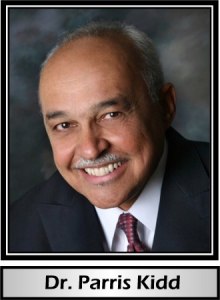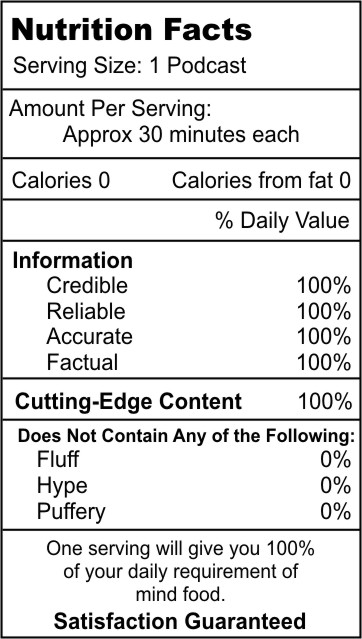Podcast: Play in new window | Download (Duration: 34:13 — 63.0MB)
There is a better form of B-12 called Methyl-Cobalamin.
 It’s not what we don’t know that bothers me, it’s what we think we know that ain’t so! This discussion on B-12 is illustrative of that point. For many years, consumers have consumed B-12 in the form of cyano-cobalamine. This is the form in many nutritional supplements, even the natural products. So many of us ‘thought’ this form of B-12 must be natural. The problem is that this form of B-12 is not an ortho molecule and is not found naturally in our bodies. There is a better form of B-12 called Methyl-Cobalamin which is an ortho molecule identical to the body’s fully active B-12.
It’s not what we don’t know that bothers me, it’s what we think we know that ain’t so! This discussion on B-12 is illustrative of that point. For many years, consumers have consumed B-12 in the form of cyano-cobalamine. This is the form in many nutritional supplements, even the natural products. So many of us ‘thought’ this form of B-12 must be natural. The problem is that this form of B-12 is not an ortho molecule and is not found naturally in our bodies. There is a better form of B-12 called Methyl-Cobalamin which is an ortho molecule identical to the body’s fully active B-12.
Methyl-Cobalamin is the most biochemically active form of vitamin B-12. Various inherited and lifestyle factors contribute to vitamin B-12 deficiencies. B-12 deficiency can impair such fundamental life processes such as recycling homocysteine, nerve cell signaling, mood and memory management and healthy gene regulation.
In this interview with Dr. Parris Kidd, we will discuss the benefits of Methyl-Cobalamine form of B-12 and what are some of the issues with the commonly used Cyano-Cobalamin form found in most supplements. Does it matter what form you use? Dr. Kidd tells us that it can make a profound difference. Listen to this compelling interview and you decide.
What is an ortho molecule? Ortho molecule is a term coined by Dr. Linus Pauling. An ortho molecule is defined as being necessary for human nutrition and is in the form as found and used in the human body. As such, not all nutritional supplements meet the definition of an ortho molecule. Dr. Kidd suggests that when possible, we should try to get our supplements in the forms that are found in our bodies. Other forms generally will not work as well and may even have some negative issues associated with their use.
Health Quest Podcast is sponsored by











{ 6 comments… read them below or add one }
Hi Steve:
I have enjoyed the interviews w/ Dr. Kidd on folic acid and B12. The question is adding methly groups to these vitamins is ‘stability’ anytime methly groups are added the stability factor is a issue, therefore has Dr. Kidd develop a method to ‘stabilze’ the methly group to the vitamins in order for the vitamin maintain it’s potency and viability?
Thank you
Ramsey Rodriguez/CISSN
I recently spoke with Dr. Kidd and he gave me permission to give you his email address, so please contact him with this question.
dpk@drbvitamins.com
There is something that I didn’t hear talked about. There seems to be a general promoted “fear” in the health industry that B12 and B12 deficiency is a huge issue. I think there is a deeper question to ask. Why is B12 a conversation piece all of a sudden? There have been long-lived, healthy cultures forever. We are focusing on one nutrient in this conversation, but if our body is healthy, it should be storing plenty of B12 and utilizing it correctly. Plus, as a vegan, I can get an ample supply of B12 from spirulina, correct?
I don’t think anyone is suggesting that this is the biggest or only nutritional issue. We are only focusing on this topic for the purpose of understanding more about vitamin B-12. I have not detected this general fear you describe. B-12 deficiency can be serious so we don’t take it lightly but I don’t see it as any where near the most serious nutritional deficiency people face.
In my podcast, I seek to explore nutritional issues for the purpose of expanding our understanding. Other interviews discuss a wide range of nutritional issues which may or may not pertain to any particular listener. I put it out there to stimulate thought and consideration.
I don’t have an answer on the spirulina question. There seems to be a divided consensus so if it way me, I would continue to seek more understanding of the issues, and go from there.
Hi Steve,
Apologies, as sometimes I can come across strong. That happens when I try to not ramble on too long. For me, as a vegan, as someone who runs a health product website, and as someone who works with individuals across the country as an “alternative health practitioner” I feel like there is a lot of fear-mongering about B12 deficiency.
It is generally from doctors, nurses, RDs and Certified Nutritionists I have found. I’m curious how there is this misunderstanding in those professions. I can’t tell you how many people come to me not getting results from conventional medicine and even conventional alternative medicine and they were on a cyanocobalamin B12 supplement.
I have been aware for awhile about methylcobalamin and in fact even got a few nutritional companies to switch over to it from cyano. I can add this point to the conversation. Cyanocobalamin is the only “organic approved” form of B12. In other words, if methylcobalamin were added to a supplement or food product, it could compromise that company’s ability to label its product “organic.”
I am curious, and didn’t hear it mentioned in the podcast, what is the form of B12 that is “bio-available” when someone consumes meat, fish or dairy. I can see articles on the internet that claim the B12 from spirulina is derived from cyanobacteria, and that the B12 in it is not ready available to humans. However, nothing seems to make a definitive statement OR say what form the B12 in spirulina takes…
I thought your podcast was well done, so I hope I didn’t offend you or think I was trying to rip it apart. Maybe you could do a follow up in the future about how and why the processes of methylation are compromised with alternative forms of B12, but also why they be compromised in the first place and why a B12 supplement would even be necessary.
I commented because I am genuinely curious. As someone who takes his health and longevity goals seriously, I want to be up on the latest science. If you have the answers, or if the doctor does, I’d be very interested.
Thanks, no offense taken. I appreciate your thoughtful response. I don’t have the answers for you as I am just exploring this myself. Dr. Kidd discusses methylation in his interviews on methyltetrahydrofolate and SAMe here on our podcast. You might pose the question to Dr. Kidd on his website dockidd.com. He is usually responsive to inquiries.